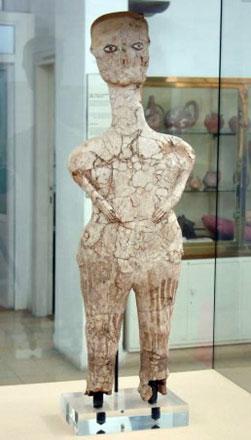I’ve been following this forum for a while although this is my first post here.
I wanted to chime in sooner, but I’m not good at keeping up with the pace of other users’ contributions and thus I delayed.
Just a heads up, this is going to be a long post.
To begin with, I don’t think is a matter of film vs digital. It’s a slippery area as when people discuss analog vs digital, most of the time the argument gravitates towards untouched pictures vs retouched. Then, there’s always someone who underlines how photo-retouching is just as old as photography, end of discussion. What’s overlooked is why retouching exists in the first place. On the one hand, in those years there were many photographers who sought a solution to their lack of painting skills and believed that photography was the solution to their problem, on the other hand, others had to defend their medium from the widespread critique of being a mechanical process, and that “without the intervention of the artist’s hand there’s no creativity” (famous is the harsh review that Baudelaire did in 1859).
The answer to all that was Pictorialism. The problem with that assumption is that not only the critique was based on a comparison between photography and painting (which was, and for many still is, the only paradigm of art), but on top of that, to a specific type of painting. Moreover, what happened at the beginning of the 20th century went completely omitted, and if we can perhaps justify those men because the times weren’t right to understand all the implication of what happened then, there’s no justification when someone today adopts the same mentality. The event I’m referring to, that changed forever the way we produce art was the action of a gentleman known under different names: George W. Welch, Bull, Pickens, Rrose Selavy, in one word, Duchamp. When he submitted the urinal to the Independent Artists’ salon in New York (signed as R. Mutt, 1917), he subverted the production of art, shifting the attention to the concept while completely eluding the technê. What Duchamp did with his work finally freed photography from the burden of the intervention of the author’s hand. Jean Clair in 1977 writes “The condemnation of photography by Baudelaire could have been word by word taken by those who were indignant that a bottle rack or a urinal were presented in an art exhibition.”
What is a photograph in the end if not another form of the Dadaists’ ready-made? A piece of reality taken, from its common context, to a new situation which engenders a new interpretation of the same element. That’s where the connection between photography and art lies.
Analog and digital are not very dissimilar, they both allow us to manipulate the photograph quite significantly if we want, but the problem is that photography is not painting and it’s rather emblematic that nowadays such a misunderstanding still reigns (and that’s how hideous 3D renders end up in photographic contests).
It’s been a matter of discussion here whether the technicality is relevant or not and I believe the answer is rather simple: it doesn’t matter. Photographers like Robert Frank, Diane Arbus, Nan Goldin, Daido Moriyama, Mario Giacomelli (with his different take on landscape photography), Urs Lüthi, to name a few, are the perfect example of when the technique becomes irrelevant. For those photographers, it’s the very act of taking the photo itself that matters. Things like proper exposure, focus, grain, composition, and so on are secondary if not, in many cases, left to chance.
After those years of liberation from the perimeter defined in the past by the relation with painting, photography had no need to prove anything anymore, therefore photographers were finally independent in their decision to whether focus on the concept or on the aesthetic (which will be revived in the 80s).
What is the situation with creativity today? First off, culturally there’s been a drastic change from the “seeker after intuitive knowledge” as Paul Strand calls it, to the “scientist” mind. In other words, humanism and arts give way to the technological.
Our societies are technically oriented and it’s the technology that drives politics and economy. What this mindset means for our culture is the fragmentation of tasks and with that of tools and, as a corollary, the loss of responsibility (Jean Francois Lyotard touches on this topic in his book “The Postmodern Condition”).
For creativity, this is the atrophy of our capacity of abstraction. Claude Levi-Strauss in “The Savage Mind” explains how the primitives had to adapt their limited tools to build what they needed: so, the same tools to build, say, a boat today will be used to mold a pipe tomorrow. Nowadays we have a tool for each specific task and we keep creating new tools (and I would definitely add all our smartphone apps in this category). The consequence of all this is that we are narrowing our imagination rather than broadening it as advertisements would have us believe. With the power of abstraction impoverished, our language followed accordingly the same fate and thus words have less symbolic functions than in the primitive societies: fork is to eat, trees to build houses, cow to make milk and so on. It’s a binary condition which reflects the evolution of the web. Social media allow only one direction through the illusion of the mirrored-self. It’s a loop (see Baudrillard, "The Ecstasy of Communication and “Simulacra and Simulation”), and it’s a narcissistic condition in the terms that McLuhan adopts which is not the common understanding of narcissism but rather the concept that our tools are now our extensions, one thing with ourselves, as we’ve become incapable of recognizing the image mirrored in the water and thus we fall in love with it as we perceive that figure as other than oneself. In fact, it’s normal nowadays to believe that mastering the tool is what makes us creative (or professionals, more in general). How many of us, at least once in our lives, noticed someone with a big camera, lenses, flashes and wondered, even for a moment, “he/she must be a pro”? In my industry, with software becoming easier (with all the automated tools) and more accessible, it’s now also popular the idea that anyone with a computer can create motion graphics works, 3d, graphic design.
The result in the way we experience the web is that whatever we put out there is part of a flow where eventually it becomes hard, if not impossible, to figure the source since, in the relinking and mixing of the original sign, there’s a loss of veracity. It’s indeed a closed system.
I’m convinced that in order to foster our creativity we need to disconnect, we need to stop looking at the myriad of images that internet inundates us with. We need to create time and necessity as nothing creative can happen when we don’t have the need to seek. What this something is, first and foremost, is an inner necessity and the way we can help to feed it is by de-limiting our own actions The camera itself provides already some limits for us, we can start from there.

